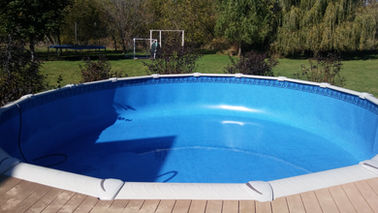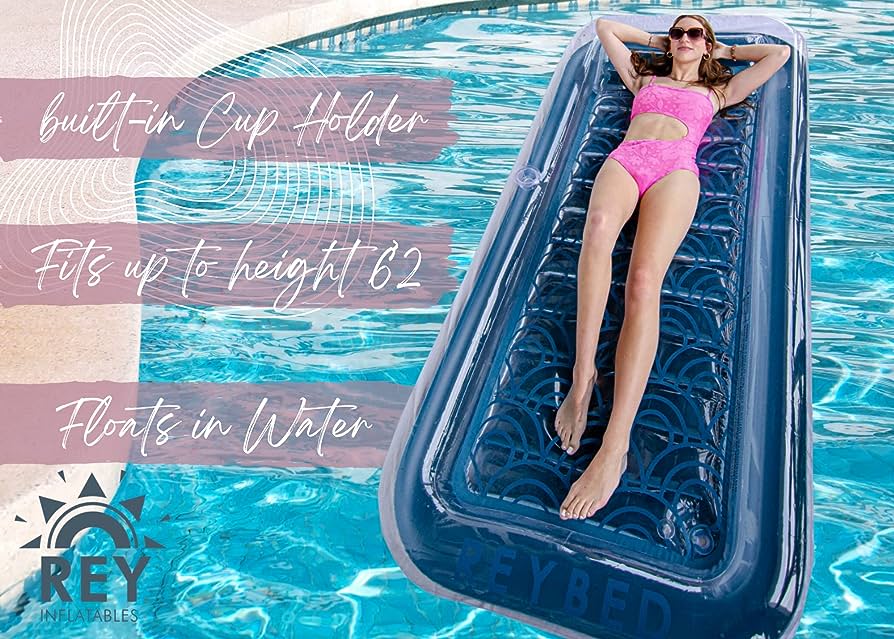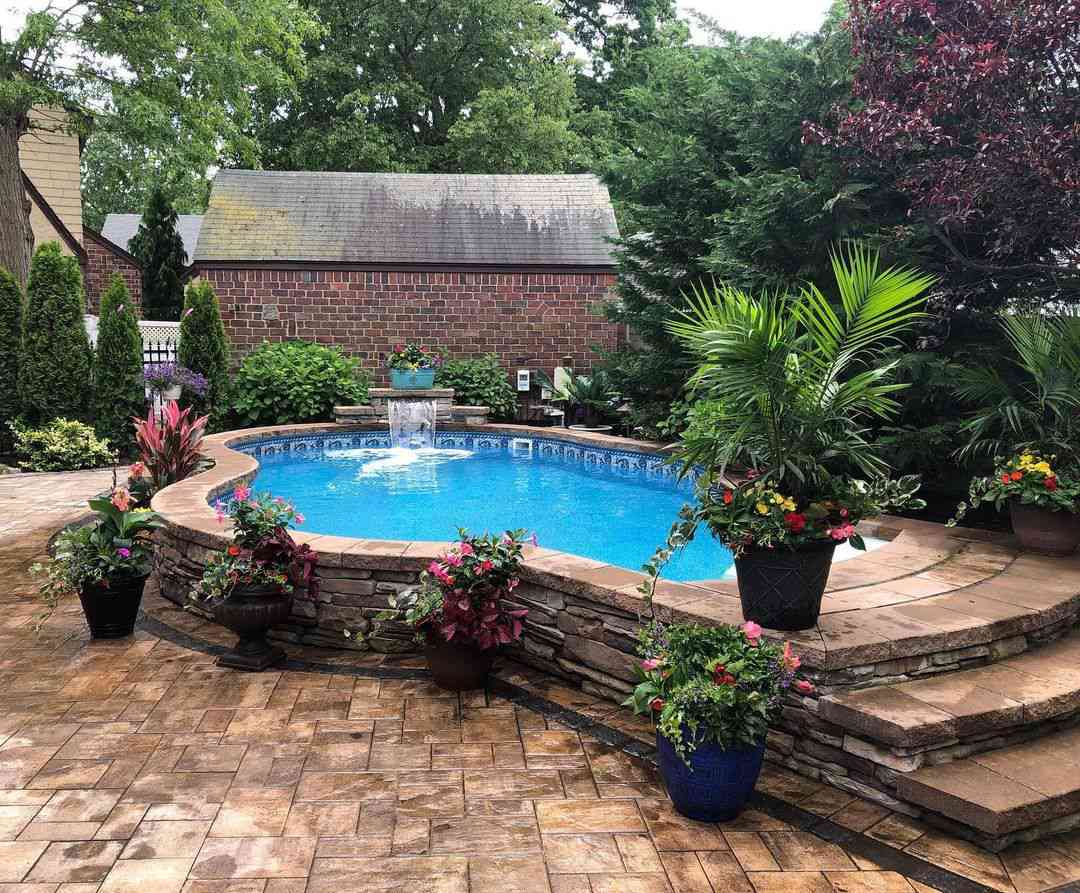Are you wondering how much it’ll cost to close your pool? Well, don’t worry, we’ve got you covered! Closing your pool properly is crucial for its longevity and a smooth transition into the colder months. In this article, we’ll delve into the factors that affect pool closing costs and give you a breakdown of the expenses involved. From the type and size of your pool to the necessary chemicals and materials, we’ll provide you with all the information you need to budget for a successful pool closing. So, let’s dive in!
Key Takeaways
- The cost of closing a pool depends on factors such as the type of pool (above ground or inground), pool size, chemicals required, other materials needed, and labor costs.
- Closing an above ground pool generally costs $100 to $200, while closing an inground pool typically costs $200 to $450.
- The cost of chemicals for pool closing can range from $10 to $100 for chlorine, $15 to $30 for stabilizer, $10 to $70 for algaecide, and so on.
- Other materials needed for pool closing include an air pillow, winter pool cover, pool vacuum, pool brush, skimmer net, and telescopic pole, with prices varying for each item.
Factors Affecting Pool Closing Cost
The factors that can affect the cost of closing your pool include the type of pool you have (above ground or inground), the size of your pool, the chemicals required, the other materials needed, and the labor costs. When it comes to pool closing costs, there are several things to consider. For above ground pools, the cost generally ranges from $100 to $200.
The smaller size and fewer equipment make it cheaper, especially if you choose to do it yourself. You will need an air pillow and a winter pool cover, along with basic cleaning equipment. On the other hand, inground pool closing typically costs between $200 and $450. The more chemicals needed and the complicated process contribute to the higher cost. Additionally, the larger size and additional equipment also increase expenses. It may be recommended to hire a professional for inground pools.
Cost of Closing an Above Ground Pool
Closing an above ground pool is generally cheaper because of its smaller size and less equipment, and you can further reduce the cost by doing it yourself. The cost of closing an above ground pool typically ranges from $100 to $200. This includes the necessary expenses such as an air pillow and a winter pool cover, as well as basic cleaning equipment. By opting for a DIY approach, you can save even more money. However, it is important to ensure that you have the necessary materials and knowledge to properly close your pool. By considering these pool closing expenses and taking the necessary precautions, you can successfully close your above ground pool without breaking the bank.
Cost of Closing an Inground Pool
To properly close an inground pool, you’ll need to consider factors that can impact the expenses, such as the size of the pool, additional equipment required, and the complexity of the process.
- Pool size: The larger the pool, the more chemicals and materials will be needed, resulting in higher expenses.
- Additional equipment: Depending on the pool’s features, such as a diving board, slides, or fountains, additional equipment may be required for proper closing, increasing the overall cost.
- Complexity of the process: Inground pools often have more intricate systems, such as underground pipes and multiple filtration systems, which can make the closing process more complex and labor-intensive, leading to higher expenses.
- Hiring a professional: While it is possible to close an inground pool yourself, hiring a professional may be recommended to ensure proper closing and potentially avoid costly mistakes.
Considering these factors will help you estimate the pool closing expenses accurately and plan your budget accordingly.
Cost of Chemicals for Pool Closing
You can expect to spend between $10 and $500 on chemicals for closing your pool. Properly winterizing your pool with the right pool winterizing supplies is essential to protect it from the harsh winter conditions and ensure a smooth opening next season. Here is a breakdown of the cost of chemicals commonly used for pool closing:
| Chemicals | Price Range |
|---|---|
| Chlorine | $10 to $100 |
| Stabilizer (cyanuric acid) | $15 to $30 |
| Algaecide | $10 to $70 |
| Bromine | $20 to $50 |
| Pool shock | $15 to $50 |
| Calcium hardness increaser | $2 to $15 |
| Baking soda/soda ash | $10 to $30 |
| Muriatic acid | $5 to $30 |
These chemicals play a crucial role in maintaining the water balance, preventing algae growth, and protecting the pool surface during the winter months. The cost may vary depending on the size of your pool and the specific products you choose. It is important to follow the manufacturer’s instructions and consult with a pool professional if needed to ensure the proper use of these chemicals.
Cost of Other Materials for Pool Closing
When preparing for winter, it’s important to budget for the necessary materials such as an air pillow, winter pool cover, pool vacuum, pool brush, skimmer net, and telescopic pole for closing your pool. These items are essential for ensuring the proper maintenance and protection of your pool during the colder months. One of the key materials you’ll need is a winter pool cover. This cover not only keeps debris out of your pool, but it also helps to prevent damage caused by freezing temperatures. Installing a pool cover is a straightforward process that can be done by following the manufacturer’s instructions. By investing in a high-quality pool cover and properly installing it, you can extend the lifespan of your pool and save yourself from costly repairs in the future.
Additional Pool Closing Information
Here is some additional information to consider when closing your pool. Permanently closing a pool can range in cost from $500 to $22,000, depending on factors such as pool type, removal type, labor costs, fill material, and pool size. Opening a pool in the future will also incur costs, ranging from $100 to $400, depending on the type of pool and whether you hire a professional. Properly budgeting for pool closing and understanding the associated costs is essential for responsible pool ownership.
Permanently Closing Cost Range
The cost to permanently close a pool can range anywhere from $500 to $22,000, depending on factors such as pool type, removal type, labor costs, fill material, and pool size. When considering pool shutdown expenses, it’s important to take into account the following factors:
- Pool Type: The cost of closing an above ground pool is generally cheaper than closing an inground pool due to the difference in size and equipment required.
- Labor Costs: Whether you choose to hire a professional or do it yourself, labor costs will impact the overall expense of closing your pool.
- Removal Type: The method used to remove the pool, whether it’s a partial or complete removal, will affect the cost.
- Fill Material: The cost of fill material, such as dirt or gravel, will vary depending on the size of the pool and the location.
Factors Influencing Pool Removal
When considering pool removal, there are several factors that can influence the cost. These factors include the type of pool, pool size, chemicals required, materials needed, and labor costs. Understanding these factors can help you make an informed decision about pool removal and budget accordingly.
To illustrate the cost factors, let’s take a look at the following table:
| Factors Affecting Pool Removal Cost |
|---|
| Type of Pool (Above Ground vs. Inground) |
| Pool Size |
| Chemicals Required |
| Other Materials Needed |
| Labor Costs |
Each of these factors contributes to the overall cost of pool removal. For example, inground pools tend to be more expensive to remove compared to above ground pools due to their larger size and additional equipment. Additionally, the chemicals required for pool removal and other materials such as air pillows, winter pool covers, and pool cleaning equipment can also impact the cost.
Considering these factors can help you estimate the pool removal cost and budget accordingly. It’s important to factor in these expenses to ensure you are prepared for any potential pool maintenance costs.
Cost of Opening Pool
To properly prepare for the upcoming pool season, you should consider the expenses involved in opening your pool, such as pool chemicals, a sump pump, and various cleaning equipment. Opening a pool requires careful planning and budgeting to ensure a smooth transition from winterization to summer enjoyment. Here are some key expenses to keep in mind:
- Pool Chemicals: Chlorine, stabilizer, algaecide, bromine, pool shock, calcium hardness increaser, baking soda/soda ash, and muriatic acid are essential for maintaining the water quality during pool opening.
- Sump Pump: A sump pump helps remove excess water accumulated during the winter, preventing damage to the pool and surrounding areas.
- Cleaning Equipment: A pool vacuum, pool brush, telescopic pole, and skimmer net are necessary tools for removing debris and keeping the pool clean.
Cost to Open a Pool
Opening your pool requires pool chemicals, a sump pump, a pool vacuum, a pool brush, a telescopic pole, and a skimmer net. When it’s time to open your pool, it’s important to have all the necessary tools and equipment on hand. The cost to open a pool can vary depending on the type of pool and whether you hire a professional or do it yourself. For an above ground pool, the cost ranges from $175 to $225, while for an inground pool, it ranges from $250 to $400. This cost includes the labor and materials needed to properly open the pool. By following a pool closing checklist and budgeting for the associated costs, you can ensure a smooth and enjoyable pool opening experience.
Frequently Asked Questions
How Can I Reduce the Cost of Closing an Above Ground Pool?
To reduce the cost of closing your above ground pool, there are a few things you can do. Firstly, consider doing it yourself instead of hiring a professional. This can save you money on labor costs. Secondly, make sure to properly clean and maintain your pool throughout the season to minimize the amount of chemicals and materials needed for closing. Lastly, shop around for the best prices on air pillows, winter pool covers, and cleaning equipment.
What Factors Affect the Cost of Permanently Closing a Pool?
Factors that affect the cost of permanently closing a pool include the type of pool, removal type, labor costs, fill material, and pool size. The cost can range from $500 to $22,000. Above ground pool removal is generally cheaper, ranging from $500 to $3,000, with an average cost of $900. Inground pool removal is more expensive, ranging from $4,000 to $22,000. Properly budgeting for these costs is essential to ensure responsible pool ownership and avoid unexpected bills.
What Is the Average Cost for Above Ground Pool Removal?
The average cost for above ground pool removal can vary depending on factors such as pool size, removal type, and labor costs. Generally, the cost ranges from $500 to $3,000. This process is typically cheaper compared to inground pool removal, which can range from $4,000 to $22,000. On average, above ground pool removal costs around $900. It’s important to consider these costs when budgeting for responsible pool ownership and planning for the next pool season.
What Is the Average Cost to Open an Inground Pool?
The average cost to open an inground pool can vary depending on factors such as the type of pool and whether you hire a professional or do it yourself. Generally, it ranges from $250 to $400. Opening an inground pool involves the use of pool chemicals, a sump pump, a pool vacuum, a pool brush, a telescopic pole, and a skimmer net. By properly budgeting for these costs, you can ensure the enjoyment and safety of your pool for the upcoming season.
Where Can I Find a Printable Pool Maintenance Checklist?
You can find a printable pool maintenance checklist to help you with regular pool care tasks. This checklist is designed to guide you through proper pool maintenance and ensure that your pool is well-maintained throughout the season. By providing your information and clicking ‘Send It,’ you can access the checklist. It’s important to double-check your entries if there are any errors when submitting the form. So, get organized and keep your pool in top shape with this helpful checklist.
Conclusion
In conclusion, closing your pool properly is essential for its longevity and a smooth transition into the colder seasons. By understanding the factors that affect pool closing costs, such as the type and size of your pool, as well as the necessary chemicals and materials, you can budget accordingly. Whether you choose to hire a professional or do it yourself, investing in the necessary equipment and supplies is crucial for a successful pool closing. Remember, taking care of your pool now will save you time and money in the long run.







